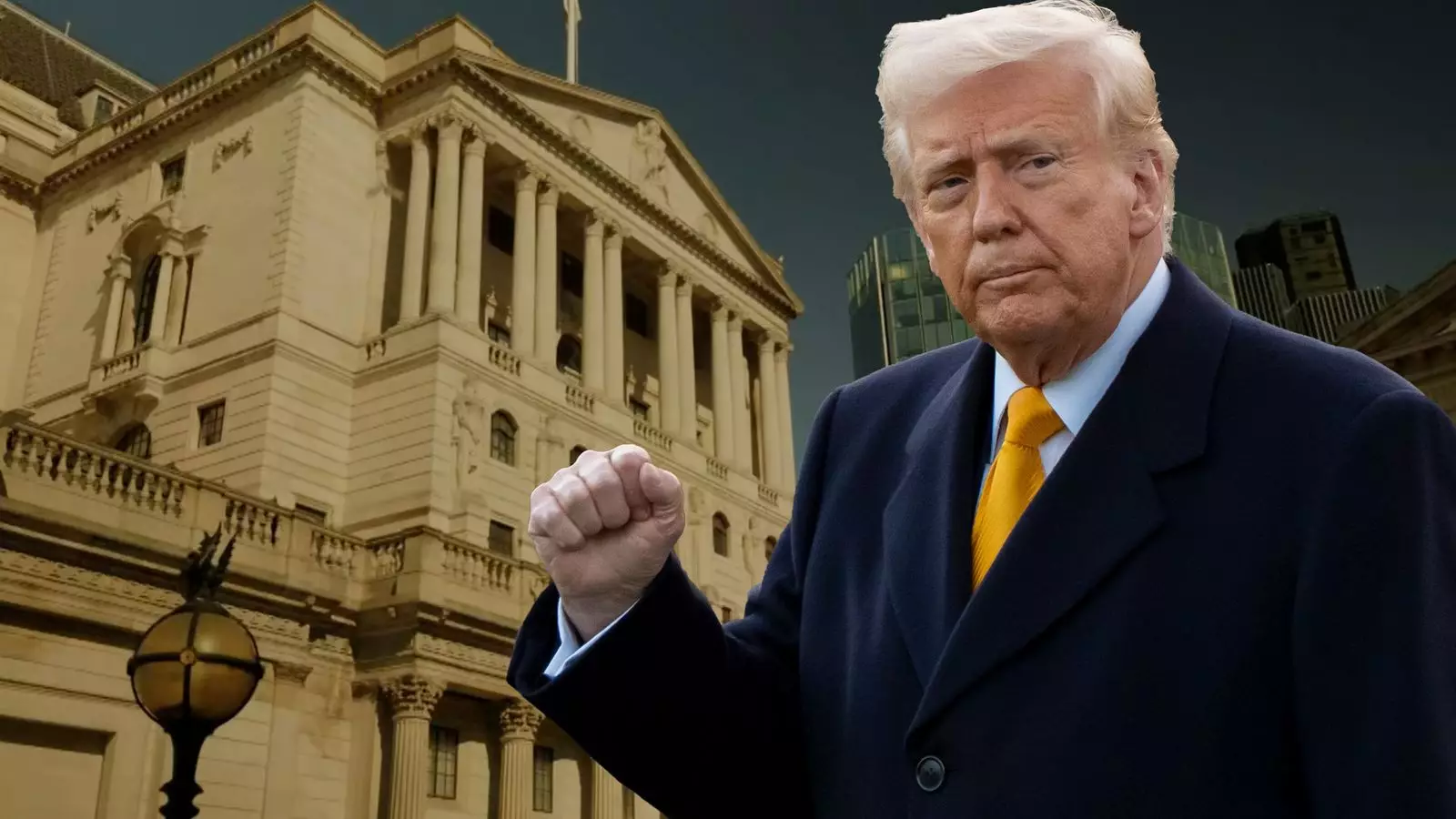The lingering turmoil of President Donald Trump’s trade war has sent shockwaves throughout the world’s financial markets, with the Bank of England finding itself in the eye of the storm. As speculations rise, the market predicts a decisive 100% likelihood of an interest rate cut next month, presenting an economic landscape rife with uncertainty. The predictions, underpinned by a sudden shift in perceptions regarding inflation, illuminate just how deeply the intricacies of international trade can influence domestic economic policy.
Megan Greene, an influential member of the Bank’s rate-setting committee, has recently pointed to the disinflationary pressures stemming from imports heavily impacted by U.S. tariffs. This nuanced perspective introduces a compelling angle to the conversation: the idea that the UK might actually benefit by being an oasis of cheaper goods amid a chaotic global trade backdrop. It raises critical questions about the implications of such a stance. Are we really prepared to rely on being a low-cost harbor in a turbulent trade sea? The potential trade-offs must not be glossed over.
The Dilemma of Rising Inflation
Amid the backdrop of the trade war, rising inflation remains a paramount concern, creating a delicate balancing act for the Bank of England. Greene’s insight into the dual forces of inflationary and disinflationary pressures raises a significant question: can the Bank safely navigate the exacerbating storm that is both trade tariffs and energy price fluctuations? With businesses reeling from April’s tax hikes, further interest rate cuts are not merely a theoretical discussion but rather a lifeline for a struggling economy.
However, the premise of a rate cut is fraught with its own set of concerns. If the Bank of England shifts its monetary policy too hastily in response to external pressures, it may find itself inadvertently undermining the very growth it seeks to stimulate. It’s a precarious dance, teetering between safeguarding inflation rates and fostering growth. Moreover, the possibility that the U.S. Federal Reserve’s cautious approach could reverberate in the UK emphasizes that we are not working within an isolated vacuum—a theme that warrants more public dialogue.
Market Reactions: Panic or Precaution?
The markets’ instantaneous recalibration after Greene’s statements highlights their sensitivity to unfolding trade dynamics. The financial community is often depicted as a thrumming heart of rationality; yet in this instance, it’s tinged with a palpable anxiety. Trump’s erratic behavior and outrageous demands for immediate policy shifts from the Federal Reserve only serve to choke confidence in economic stability. In a sense, the protest against Powell serves as a reminder that leadership in policy-making is increasingly vulnerable to the whims of media exposure and personality-driven politics.
This anxiety can prove paradoxically beneficial if it catalyzes a more profound discussion on the importance of a stable and well-considered financial policy, one that doesn’t bend to the pressures of capricious political demands. Transparency and assurance from central banks become paramount in reassuring markets that long-term stability remains a priority, even amid unpredictable external influences.
The Role of Leadership in Turbulent Times
Currently, Chancellor Rachel Reeves is forging ahead with vital discussions in Washington intended to cultivate a stronger transatlantic relationship. One can argue that her efforts in securing an agreement to potentially eliminate tariffs are not merely bureaucratic necessities but essential to the survival of the UK’s economic vitality in a fast-evolving global arena. It underscores an important dialogue about the power dynamics at play within both domestic policy and international relations.
In these tumultuous times, the Bank of England’s decisions and the chancellor’s dialogues with their U.S. counterpart will be scrutinized intensely. The economic lifelines will depend heavily on how both leaders interpret the volatile landscape and respond with policies that balance the immediate need for growth against long-term economic health. The stakes could not be higher.
Ultimately, the ramifications of these economic negotiations go beyond mere numbers on a page; they affect livelihoods and the very fabric of society. A precarious interdependence lies at the heart of the global economy, and now, more than ever, we need leaders who are ready to challenge the status quo in pursuit of sustainable solutions. As we navigate these uncertain waters, one thing is for sure: we must demand a robust response that prioritizes collective economic resilience above all.


Leave a Reply